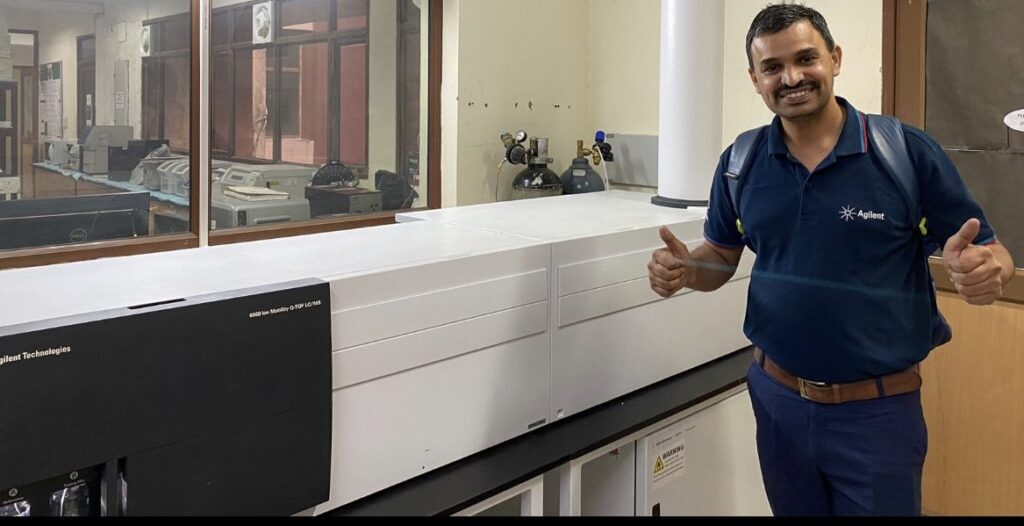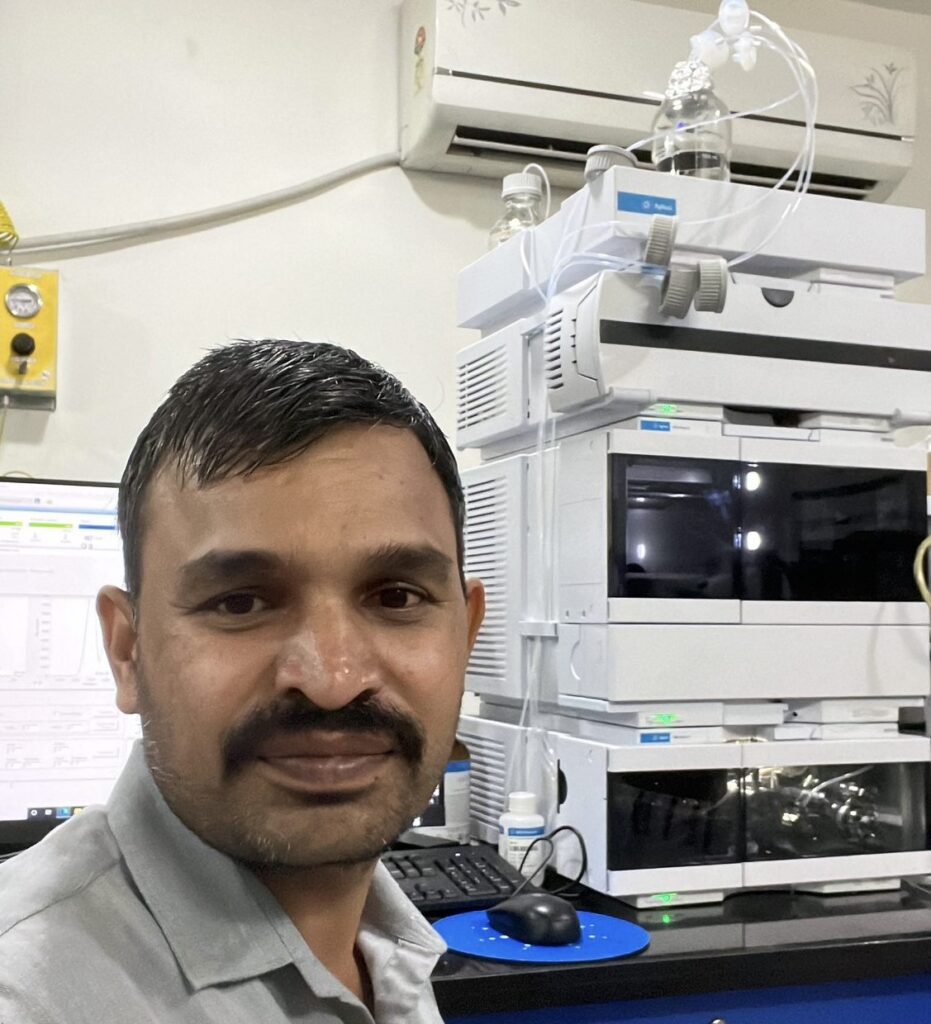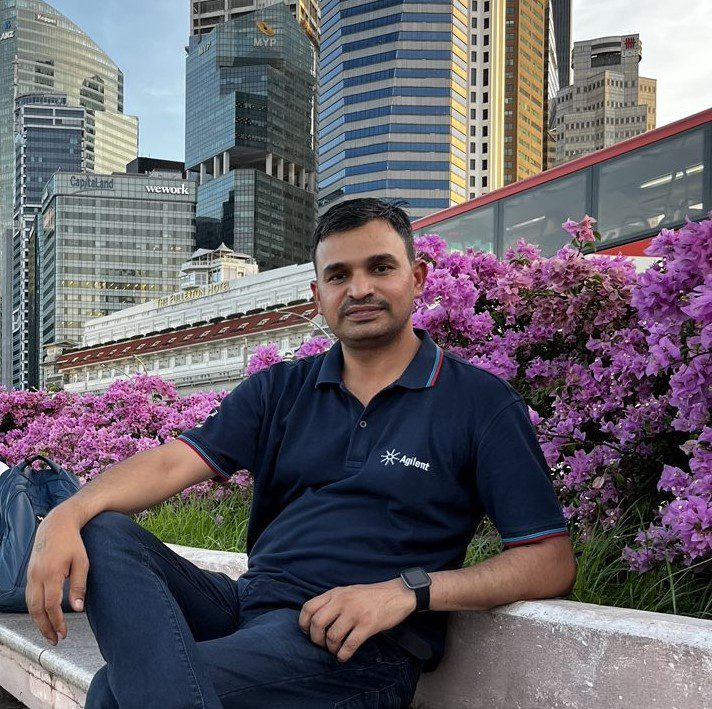Roshan Lal, LCMS FSE, Agilent Technologies
Roshan Lal has over 17 years of experience in analytical instrumentation. Currently he works with Agilent Technologies as a Senior Field Service Engineer for LCMS (Liquid chromatography-mass spectrometry), LC (Liquid chromatography), CE (Capillary Electrophoresis), and Multivendor products. Previously he worked for Thermo Fisher Scientific for LC and IC (Ion Chromatography) as a Support Engineer.
Roshan has also worked with a leading pharma company Dr Reddys Laboratories as an Inhouse Instrumentation Engineer where he managed all the analytical instruments available in the lab.


Background and path to engineering
Could you give a brief description of your background and why you decided to study instrumentation and control engineering?
While I was studying engineering at college, I decided to specialise in instrumentation engineering because it gives a lot of scope, as well as many opportunities. For example, it leads to many options like:
analytical instrumentation,
medical instrumentation,
process instrumentation, and
automation industries.
Have there been particular people who have inspired you?
Towards the end of my degree in Instrumentation and Control Engineering, my lecturers encouraged me to continue in the field as an Analytical Field Service Engineer.
My lecturers and mentors were:
Mr Kunal Jeet Singh, Director at Technical Education India, New Delhi,
Mr Kanwal Sachdeva, Principal at Government Polytechnic, Kurukshetra Haryana,
and Mr Kuldeep Kharyal, Director at Agilent Technologies.
Their blessings always inspire me.
Types of equipment
Can you outline the types of equipment and instruments you have worked on?
I handle all major Analytical instrumentation like LCMS, QTOF, CE, HPLC, UPLC, IC instruments. For the most part Agilent and Thermo Fisher make the analytical instruments.
I handle the most critical instruments in LCMS, QTOF, IC. I would like to be a specialist for Q-TOF (Quadrupole Time of Flight) instruments and other related instrument in the field of mass spectrophotometry.
What has been the easiest type of equipment to service or maintain?
For me liquid chromatography instruments are the easiest as of now. Most of the time though, the situation depends on the customer’s attitude and circumstance as well.


Typical week
How much of your time is spent out in the field with customers and how much with admin and other tasks?
I travel most weeks. Some weeks I am out of the city due to travel for 2- 4 days. About 60% of my travel is for my routine calls.
Apart from the routine support, I have some other administrative responsibilities as well for my team and my regional responsibility. To achieve that I connect with my team at regular intervals. I have mentoring responsibility for my new teammates.
How much of your role is PPM?
On a regular basis, I perform PPM (Planned Preventative Maintenance) of LCMS, MC, CE, HPLC instruments.
During preventive maintenance I always attempt to teach the customer/end-user in the basic care related to the activity. So that they can then perform this activity whenever required during troubleshooting. This will help their skill development as well as save our time. So, it is good for the future for the customer and for field engineers as well. This will save time for the customer and ours as well.
How do you feedback information from the customer to the rest of your company (like marketing, sales, etc.)?
After finishing my work at a customer’s site, I try to meet users, management, or senior officials to discuss our new products and service offerings. Then I will always and regularly share my visit summary to the customer as a best practice.
Customer training
How often do you need to offer training to your customers?
Mostly during any installation, we provide training to the customer. As well, I try to teach lab users during my routine visits.
If any customer is facing a difficulty or has a query, we must support them in the best possible way. I always have a “customer first” attitude. This attitude has helped me to build rapport with customers.
Most challenging part of the job
What do you find most challenging when you are working – technical side, people/customers, or logistics (travel etc.)?
Sometimes back-to-back travelling is a challenge for me. However, I always try to manage this and balance my business and personal life. I am happy to help the customer at all times.
Have you ever arrived on site and found that it was much easier than you expected? For example, did you ever need to simply switch on a machine.
Of course, in a very few cases, I found it was an easy job to complete onsite when I arrived and easily found the cause of the problem.
So it is better to talk to the customer before planning your travel, especially customers who are a long drive away. This pretalk, will help you to prepare fully for the visit.
Are there particular health and safety rules you need to follow in terms of hygiene because of the types of equipment and instruments you are working with?
Yes, in all analytical machines there are many hazardous chemicals and solvents to use. So, we always need to take proper PPE for handling these. Not using the correct PPE can be dangerous and impact the body a lot. That’s why I always prefer to use proper PPE like gloves, a lab coat, and safety goggles.
Making a winner
What makes the type of field service engineer who is tomorrow’s senior engineer? (e.g. personal drive, training, ability to think outside the box)
Yes, I totally agree with this.
You have to have proper diagnostic skills, ability to identify proper root cause before closure and also have a sharp mind to do it all quickly. You must have patience at a customer site.
How important are communication and people skills?
It is always extremely important how you manage a customer in a critical situation (escalation). It is a very important and proven skill to manage a customer well.
How key is it to have a mentor supporting each individual engineer?
If your mentor taught you how to manage critical situations (escalations), then you will be at an advantage.


New field engineers
What advice would you give to someone who has just started their first job as a field engineer? Or is considering moving into this field?
The first thing I wish to mention for new field service engineers is to have patience and to have confidence.
Always be willing and ready to travel and don’t be afraid of the customer.
Don’t be in a hurry; take the proper time to close and take the proper time to search for the cause.
I have seen all this from the start of my career as a field service engineer: you must be calm, skilful and have patience and not be the sort of person who praises themselves.
Further reading
Jeffery Stanley a Biomedical Laboratory Equipment Engineer from North Carolina
Johannes Rosenkranz Field Service Engineer for Miltenyi Biotec in Denmark
Managing a Medical and Scientific Instrument Support team, Sakher Fadaleh’s insights


Responses